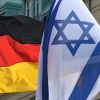The miracle of change
Israel is celebrating the 70th anniversary of the foundation of the Jewish state. To mark the occasion, seven committed people take a look at interaction between Germany and Israel.
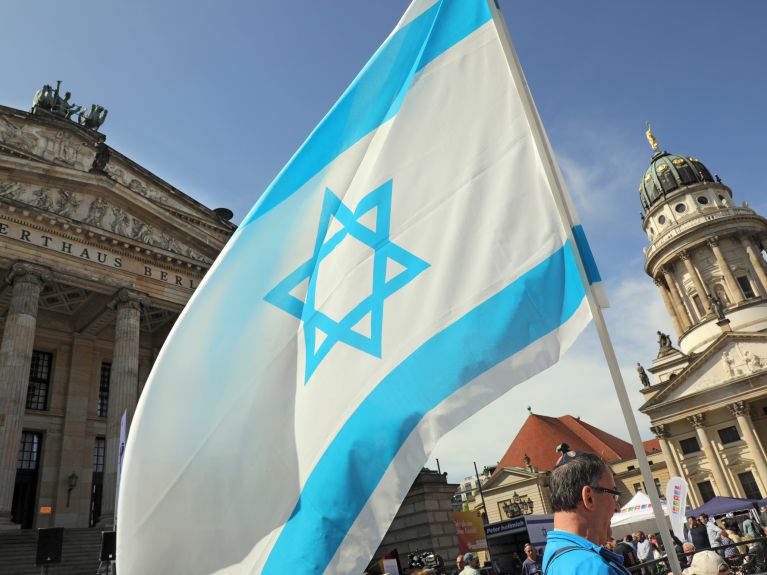
It was a day of jubilation after the catastrophic Holocaust and the homelessness of many Jews following their persecution by the Nazis: On 14 May 1948 Ben Gurion read out the Israeli Declaration of Independence in Tel Aviv and proclaimed the foundation of the State of Israel. Exclusively for deutschland.de, seven Germans and Israelis active in the field of German-Israeli exchange describe how they view relations between the two countries on the occasion of the anniversary of the founding of the state.
Tal Alon: A sign of hope
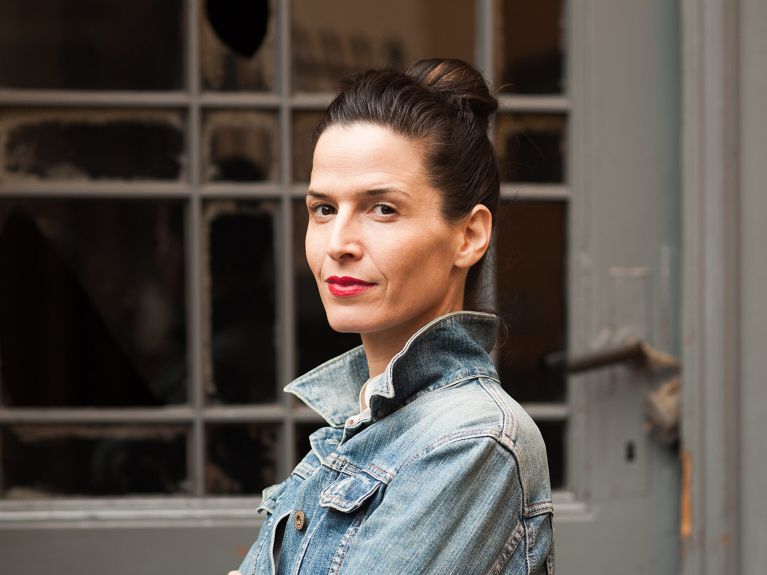
“My involvement in German-Israeli relations started when I moved to Berlin in summer 2009 together with my husband Olaf Kühnemann and our two boys, and was reinforced after I founded SPITZ, the first Hebrew magazine in Berlin and Germany since the Holocaust. That’s the simple background, but taking into account that my family name (Alon) is actually a Hebrew translation of the German name “Eichenholz” and that my husband, whose parents are non-Jewish Germans, grew up in Israel as a result of his mother’s relationship with an Israeli man, one can figure that there are deeper roots to the story. In any case, today German-Israeli relations are deeply intertwined in my biography, and their value for me as such derives first and foremost from the immense personal impact they have on my life. In a wider context, I see German-Israeli relations as a sign of hope and optimism as regards the human potential for positive transformation, even from the lowest point imagined. Being such an inspiring model, these relations should be treasured and nurtured. However, this shouldn’t mean we devote ourselves to maintaining the status quo or to endlessly echoing the same patterns, as we should instead aspire to foster dynamic, open and conscious relations.”
Read more here on Spitz-Magazin
Kerstin Griese: Preventing people from forgetting, enabling encounters
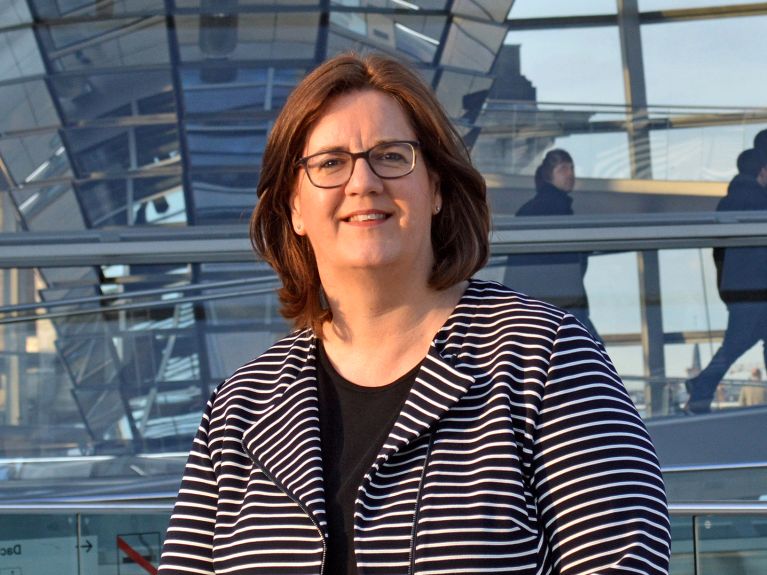
“As a young woman I was involved with church youth work. My political ideas took shape when I visited the concentration camp memorial at Auschwitz with my group. I subsequently studied history and worked for 13 years at a memorial to the victims of Nazism. It fills me with pride that, as a member of the Youth wing of the Social Democrats, I was able to co-found the Willy Brandt Center in Jerusalem 22 years ago. To this day the centre is a truly important place for encounters and communication between young Germans, Israelis and Palestinians. For me, strengthening and nurturing German-Israeli relations means always being conscious of history and the responsibility that has arisen from it, preventing people from forgetting, and consistently combatting anti-Semitism. Today we have a young generation that meets, for instance, in the context of German-Israeli youth exchange programmes and talks about current topics, culture and science. That is the great thing about these really lively relations.”
Christine Mäher: Young people enable rapprochement
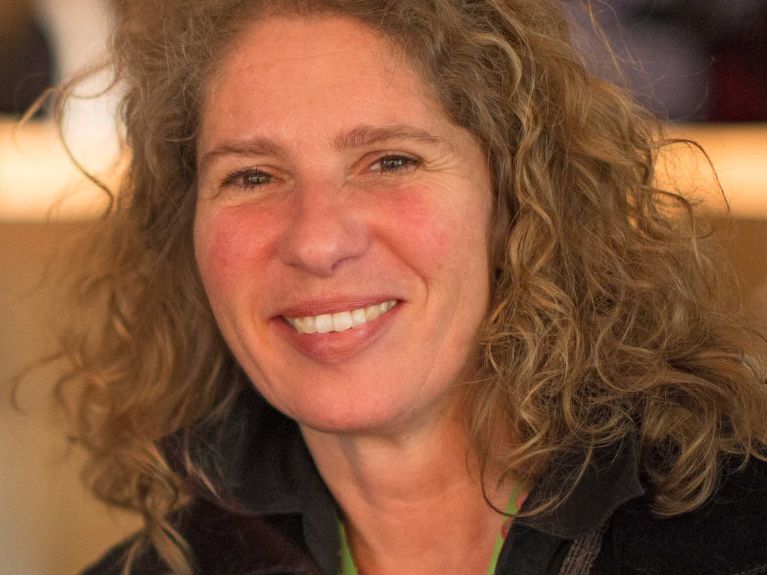
“I am a child of German-Israeli youth exchange and today am involved in exchange between the young generations. Even before the start of diplomatic relations, young people enabled the first cautious rapprochement and this continues to be the case to this day. Young people have always built bridges between uncertainty and reservations. Today, some 300 programmes a year are supported by federal funding in extracurricular German-Israeli youth exchange. If we include school exchanges and voluntary services, around 10,000 young people visit each other per year. They ask each other questions shaped by history: ‘Who are you and who am I in today’s reality? How are you and your family related to this history? How do you perceive your society today and what has that got to do with the past?’ For me, German-Israeli relations are the sum of hundreds of thousands of small encounters that have taken place over the decades. And my wish for Israel is that one day it will also, by means of many small rapprochements, live with well-disposed neighbours and open borders.”
Click here to read more about the work of ConAct.
Hellmut Königshaus: Inform and enlighten
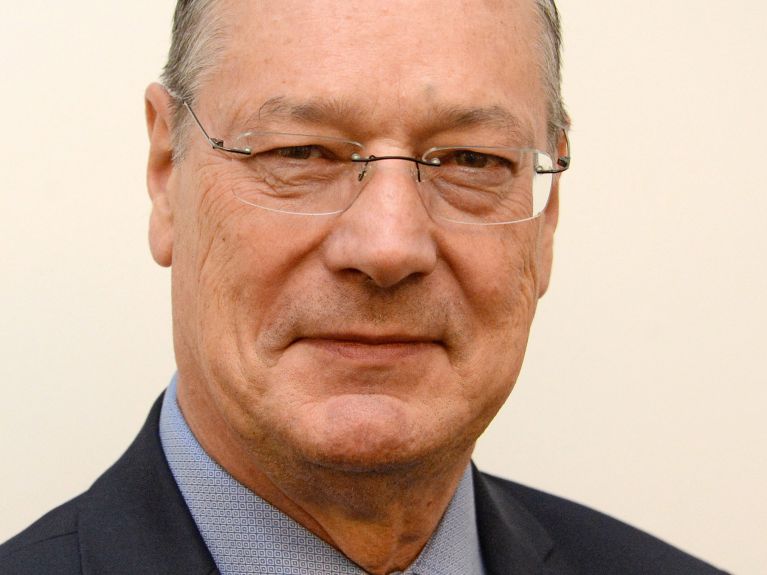
“The first Israeli passports issued after the founding of the state carried the stamp: ‘Valid for all countries except Germany.’ After the Shoah, people in Israel wanted to avoid all contact. Today our country is among Israel’s closest friends. The Israeli Embassy in Berlin is the second largest in the world after that in the USA. Thus after 70 years, the situation is entirely different. Nonetheless, in Germany there is often still a lack of knowledge and understanding of Israel’s particular situation in a predominantly hostile environment. Which is why today more than ever it is important to inform people about Israel and its security situation, to raise awareness and explain things. In German school textbooks of all things we can still find in part appalling and shocking assessments of the situation in and around Israel, because they are not objective and carry a latent anti-Semitism. The DIG endeavours to correct this. For instance, it has published an information booklet and held intensive discussions with the conference of education ministers (KMK). Not least in light of immigrants to Germany who take a hostile stance towards Israel, informing and enlightening in particular young people remain very important tasks for us.”
More on the topic of anti-Semitism and the measures Germany is taking against it.
Claudia Korenke: Partners for generations: cities, families, people
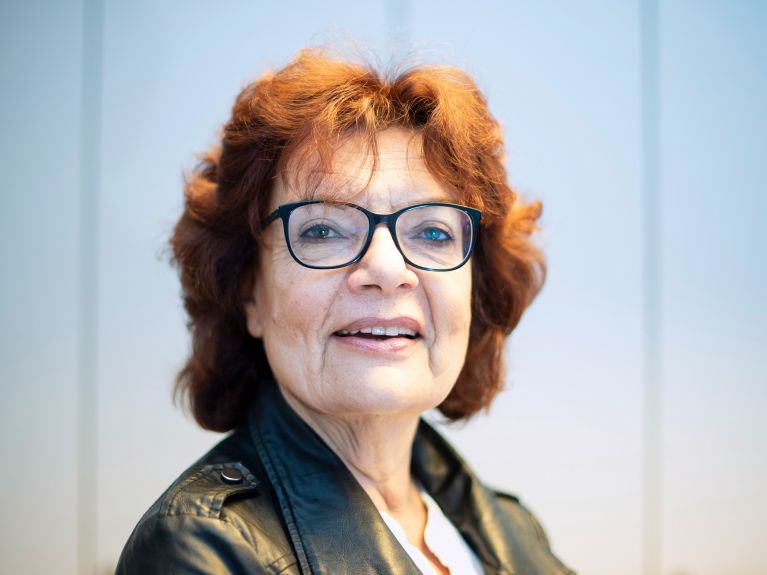
“For me, the German-Israeli partnership is a family matter. My father was president of the Frankfurt municipal parliament and in 1980 set the cogs in motion together with the lord mayor for twinning Frankfurt/Main and Tel Aviv. I was often in Israel with my father, learnt Hebrew and have also been helping shape the city partnership for 18 years as Chair of the relevant working party. The development from the beginnings to the present day is overwhelming. For today’s generation Tel Aviv is the city that never sleeps, with the most beautiful city beach in the world. In the context of the city partnership we are marking the anniversary by screening Israeli films, holding seminars, and inviting historians, economists and rabbis to present Israel from various perspectives. The waiting lists are endless for our anniversary meal with Israeli-inspired cuisine. There is such great interest in Israeli culture! For the anniversary, I sincerely wish Israel peace in indisputable borders.”
www.deutsch-israelische-gesellschaft.de, www.dig-frankfurt.de
Andreas Schmitges: Musicians are curious

“As a musician I have taken an interest in East-European Jewish music, meaning from a European diaspora culture, for around 20 years. In 2017 the Yiddish Summer Weimar platform for the first time focussed on the topic of Israel and the question as to which other diaspora cultures exist there – Iraqi-Jewish, Yemeni-Jewish, Moroccan-Jewish, Sephardic, Arab traditions and many more! The Caravan Orchestra, whose 30 members now play Arab and Yiddish music, arose from the cooperation between Yiddish Summer Weimar and the Arab-Jewish Orchestra from the Music department at the University of Haifa. Musicians are curious about sounds that are initially foreign. They approach things they are not familiar with, because they experience them as something good and interesting, something that is exciting and that they can learn. That is why musicians have an important mediating function: They can transport the curiosity for things foreign to their audience. My wish for the anniversary is that lots of similar projects to ours emerge and that we are able to continue exploring Israel’s cultural, musical diversity. There is nothing more exciting than the way cultures interact – something in which Israel has 70 years’ experience. The Europeans can learn a great deal from that.”
www.yiddishsummer.eu, www.caravanorchestra.eu
Michal Zamir: The joy of a wholly commonplace encounter
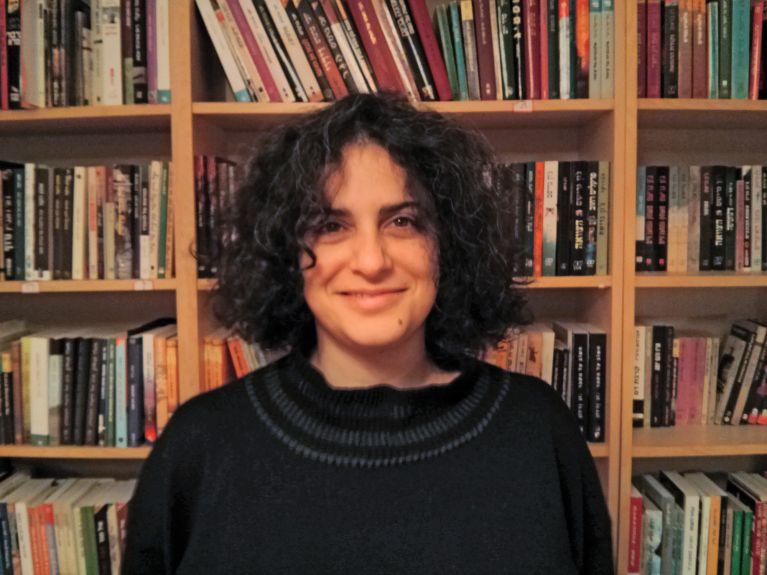
“There are thousands of Israelis living in Berlin today. I am one of them. Something I was missing was access to Hebrew literature, a Hebrew library. So I established one – in my own living room. It lives off donations from Germany and Israel and now contains several thousand books. Every month artists, writers, students and musicians, new arrivals to the city and children come to my home to exchange or borrow books. Anyone interested in Hebrew literature can come here. Berlin is so full of diverse life. Jewish and Israeli culture is also present in everyday Berlin life in many regards – now with my library too. My hope is that the Hebrew culture enters into dialogue with the German public over coffee and cake and that this encounter is an entirely commonplace one between Germans and Israelis.”
More about the Hebräische Bücherei Berlin.
Minutes: Bettina Mittelstraß
